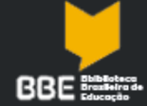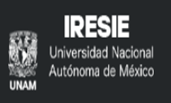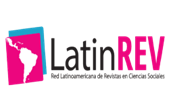Teacher conceptions about integrated high school in the Instituto Federal de Alagoas
DOI:
https://doi.org/10.35699/2238-037X.2020.19981Keywords:
Integrated high school, Integrated curriculum, TeachersAbstract
This paper analyzes how the teachers of the Instituto Federal de Alagoas conceive the issue of integrated high school and the constitution of the curriculum that meets this demand. It aimed to understand the teachers' perceptions about integrated high school and the integrated curriculum, identifying the strategies used by teachers to promote the integrated curriculum and analyzing their difficulties in establishing it. It was carried out with 23 professors from the Instituto Federal de Alagoas and used bibliographic and documentary research as well as the questionnaire as methodological instruments. The results showed that teachers understand in part what integrated high school is all about and 78.3% use strategies that they believe promote it, although 82.6% have never received training to work with the integrated curriculum. In addition, most are able to establish partnerships with other teachers, even if there is no joint planning between them. This demonstrates the need to use strategies, such as training and workshops, so that teachers have a greater understanding of what the integrated curriculum is and of ways to promote it. It also points to the importance of promoting moments of integration, partnerships and planning among teachers.
References
AMORIM, M. G. R. Educação para o Trabalho no Capitalismo: o Projovem como negação da formação humanada. São Paulo: Instituto Lukács, 2018.
ARAUJO, R. M. L.; FRIGOTTO, G. Práticas pedagógicas e ensino integrado. Revista Educação em Questão, Natal, v. 52, n. 38, p. 61-80, maio/ago. 2015.
CAMBRAIA, A. C.; ZANON, L. B. Desenvolvimento profissional docente numa licenciatura: interlocuções sobre o projeto integrador. Revista Brasileira de Educação, Rio de Janeiro, v. 23, 2018.
CIAVATTA, M. A formação integrada: a escola e o trabalho como lugares de memória e de identidade. In: FRIGOTTO, G.; CIAVATTA, M.; RAMOS, M. (Orgs.). Ensino Médio Integrado: concepções e contradições. 3. ed. São Paulo: Cortez, 2012.
FRIGOTTO, G. A relação da educação profissional e tecnológica com a universalização da educação básica. Educação e Sociedade, Campinas, v. 28, n. 100, p. 1129-1152, out. 2007.
FRIGOTTO, G. Concepções e mudanças no mundo do trabalho e o ensino médio. In: FRIGOTTO, G.; CIAVATTA, M.; RAMOS, M. (Orgs.). Ensino Médio Integrado: concepções e contradições. 3. ed. São Paulo: Cortez, 2012.
GRIEBELER, J. R. C.; FIGUEIREDO, I. M. Z. Os Diferentes Sentidos Atribuídos à Compreensão da Relação da Educação Profissional e Ensino Médio. Contexto & Educação, ano 31, n. 98, p. 28-51, jan./abr. 2016.
KUENZER, Acácia Z. (Org.). Ensino Médio: construindo uma proposta para os que vivem do trabalho. São Paulo: Cortez, 2000.
MOTA, J. S. Utilização do Google Forms na pesquisa acadêmica. Revista Humanidades e Inovação, v. 6, n. 12, p. 371-380, 2019.
NOSELLA, P.; AZEVEDO, M. L. N. A educação em Gramsci. Rev. Teoria e Prática da Educação, v. 15, n. 2, p. 25-33, maio./ago. 2012.
RAMOS, M. Concepção do ensino médio integrado. Versão ampliada de exposição no seminário sobre ensino médio (Mossoró, RN), 2007. Disponível em: http://forumeja.org.br/go/sites/forumeja.org.br.go-/files/concepcao_do_ensino_medio_integrado5.pdf. Acesso em: 17 set. 2017.
RAMOS, M. Possibilidades e desafios na organização do currículo integrado. In: FRIGOTTO, G.; CIAVATTA, M.; RAMOS, M. (Orgs.). Ensino Médio Integrado: concepções e contradições. 3. ed. São Paulo: Cortez, 2012.
SAVIANI, D. Trabalho e educação: fundamentos ontológicos e históricos. Revista Brasileira de Educação, v. 12, n. 34, jan./abr. 2007.
Downloads
Published
Issue
Section
License
Copyright (c) 2020 Trabalho & Educação

This work is licensed under a Creative Commons Attribution 4.0 International License.
Os autores têm autorização para assumir contratos adicionais separadamente, para distribuição não-exclusiva da versão do trabalho publicada nesta revista (ex.: publicar em repositório institucional ou como capítulo de livro), com reconhecimento de autoria e publicação inicial nesta revista.












